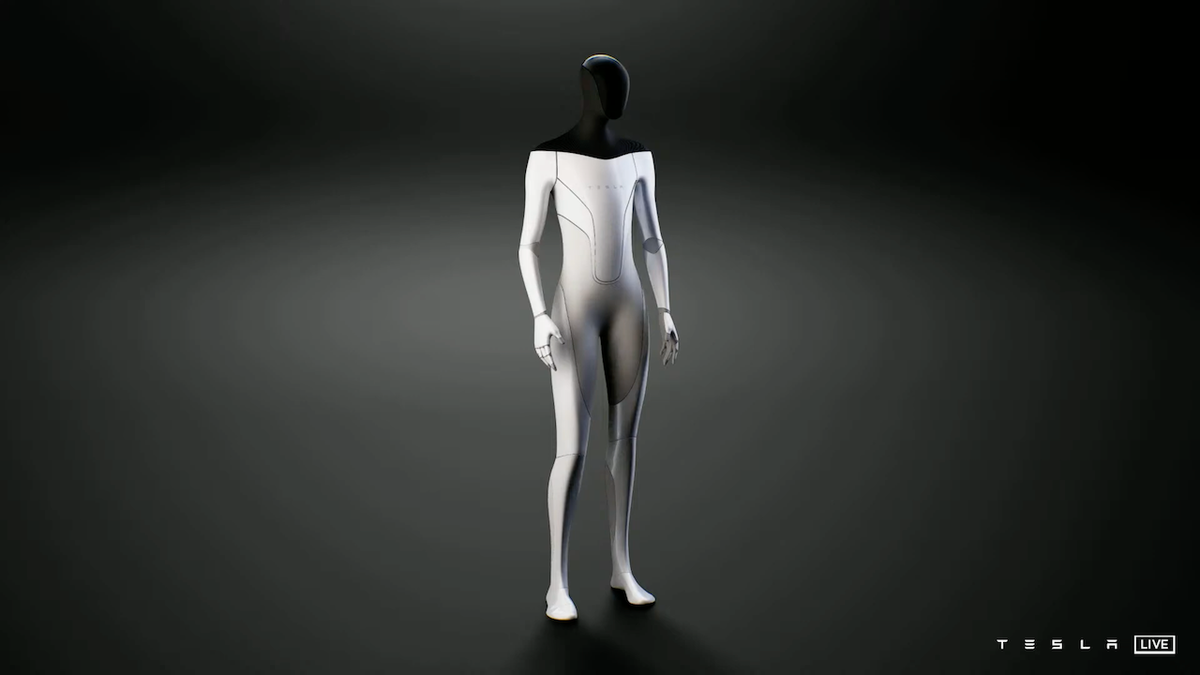
What’s the point of unveiling something that will probably never happen? Whether it’s Musk’s robotaxis that were supposed to arrive by 2020, or solar roof tiles from 2016 that never came into being, the point of vaporware is to push a company into the headlines and sell more of the same shit they were selling before. Bored TV news outlets with 24 hours to fill get to wash a particular brand—and in this case the brand is Musk’s Tesla—in a hopeful and techno-utopian mystique. It also helps distract from negative news stories, like when your “Autopilot” product kills people.
Advertisement
But it would appear that Musk got exactly the kind of coverage he wanted overnight with this strange presentation that was livestreamed on YouTube. Just take a look at how Musk’s stories sounded in various news outlets.
CNN:
Musk said the robot would have a “profound” impact on the economy. He said physical work would be a choice in the future, and a universal basic income would be needed. Musk is among the Silicon Valley leaders who have cautioned that technology may eliminate the jobs of many people, so some humans will need another income source.
Advertisement
Interestingly, Musk is imagining this as replacing much of the human drudge work that currently occupies so many people’s lives – not just labor but things like grocery shopping and other everyday tasks. He waxed about a future in which physical work would be a choice, with all the attendant implications that might mean for the economy.
Advertisement
The robot would carry out the work people don’t like to do. “It’s around 5 foot 8. It has sort of a screen where the head is for useful information, but it’s otherwise basically got the autopilot system and it’s got cameras, got eight cameras,” said Musk. “Full self-driving computer and making use of all of the same tools that were used in the car.”Musk mentioned the robot’s economic impact, using the current worker shortage as an example.
Advertisement
Every one of these stories could have appeared in newspapers of the 1950s and ‘60s with only minor changes. A universal basic income guaranteed to every worker because robots are taking their jobs? Check out this excerpt from an article in the November 26, 1967 edition of the Gastonia Gazette in North Carolina, emphasis ours:
Those who hunger for time off from work may take heart from the forecast of political scientist Sebastian de Grazia that the average work week, by the year 2000, will average 31 hours, and perhaps as few as 21. Twenty years later, on-the-job hours may have dwindled to 26, or even 16.
But what will people do with all that free time? The outlook may not be cheery.
As De Grazia sees it: “There is reason to fear, as some do, that free time, forced free time, will bring on the restless tick of boredom, idleness, immorality, and increased personal violence. If the cause is identified as automation and the preference for higher intelligence, nonautomated jobs may increase, but they will carry the stigma of stupidity. Men will prefer not to work rather than to accept them. Those who do accept will increasingly come to be a politically inferior class.”
One possible solution: a separation of income from work; perhaps a guaranteed annual wage to provide “the wherewithal for a life of leisure for all those who think they have the temperament.”
Advertisement
And there are literally dozens, if not hundreds, of examples like this from mainstream commenters at the time. Even Walter Cronkite, the most respected newsman of his generation, was promising a, “30-hour work week and month-long vacations as the rule” by the year 2000. It was all thanks to our robot friends.
Sadly, if we want any of these robots to actually create less work for people we’d have to reorganize society completely. Because Musk’s old-fashioned promises could be a reality if politicians actually wanted them to be. Worker productivity is through the roof compared to the 1960s, but workers aren’t sharing in the wealth they create. The problem is that billionaires like Musk are keeping more of the profits. We didn’t get 30-hour work weeks because your boss has no incentive to pay you for working less. Your boss wants to squeeze as much work out of you as possible while paying you the absolute minimum. That’s the whole idea behind capitalism.
Advertisement
Curiously, Musk’s fake robot bears a striking resemblance to Miss Honeywell, another human dressed up to look like an automation in the 1960s.
Musk may not be always delivering humanity the future. But he’s got the retro-future theatrics down to a science.
Advertisement